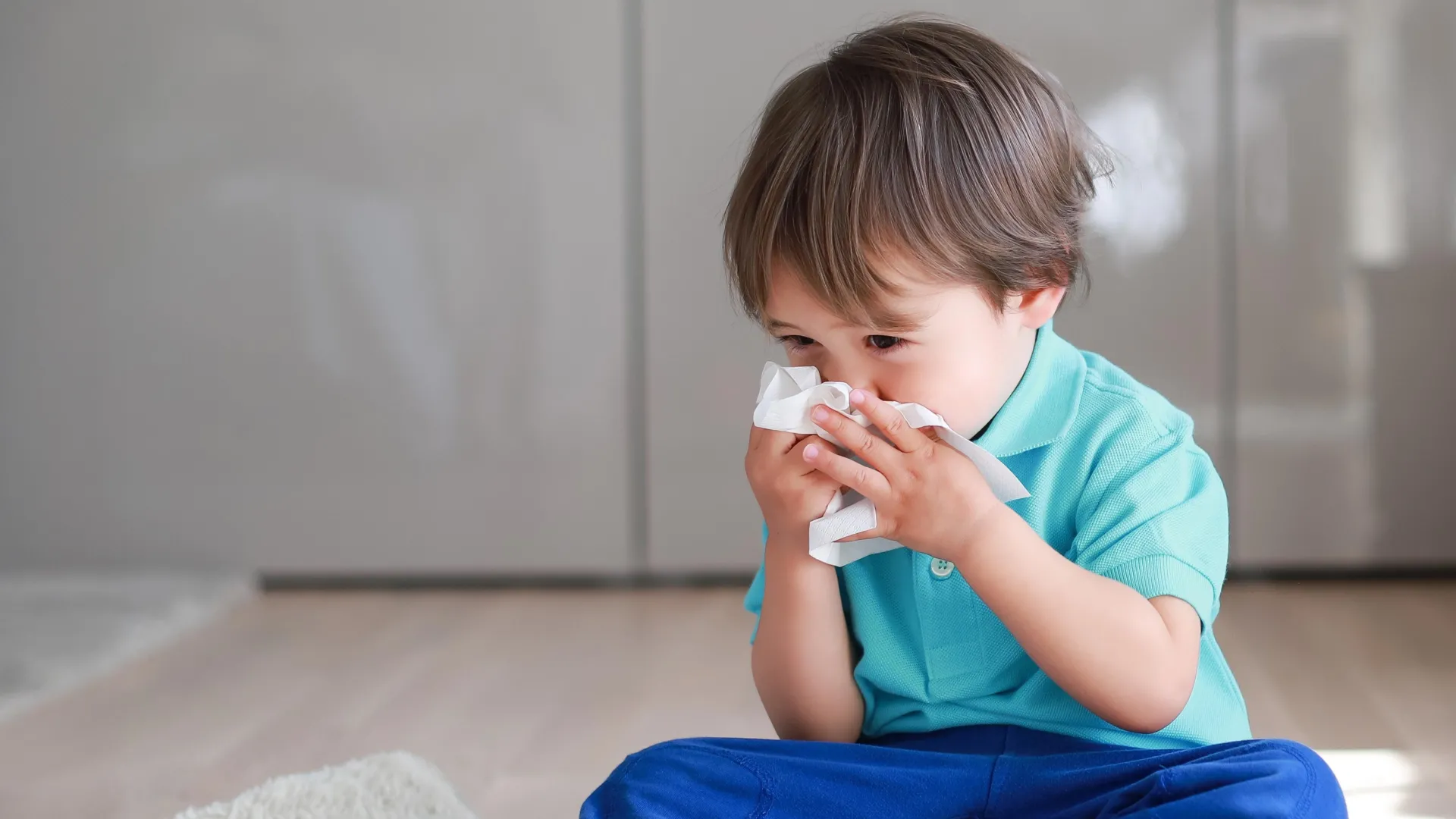The common cold’s unexpected superpower against COVID
- Date:
- August 26, 2025
- Source:
- National Jewish Health
- Summary:
- A nationwide study found that recent colds caused by rhinoviruses can give short-term protection against COVID-19. Children benefit most, as their immune systems react strongly with antiviral defenses, helping explain their lower rates of severe illness.
- Share:

A new study led by researchers at National Jewish Health has found that recent infection with the common cold -- often caused by rhinoviruses -- may offer temporary protection against infection with SARS-CoV-2, the virus that causes COVID-19. The research provides fresh insight into why children are less likely than adults to develop symptoms and could point toward new ways to reduce the severity of respiratory illnesses.
Published in the Journal of Infectious Diseases earlier this month, the study analyzed data from the nationwide Human Epidemiology and Response to SARS-CoV-2 (HEROS) study, which tracked more than 4,100 people in 1,394 households from May 2020 to February 2021.
Researchers found that people, particularly children who had a recent rhinovirus infection, were significantly less likely to become infected with SARS-CoV-2 in the following weeks. This effect is thought to be linked to the body's antiviral defenses. Rhinoviruses trigger a strong interferon response in the airways, which can temporarily prime the immune system to fight off other viruses.
"Our findings suggest that the immune boost from a recent cold may give the body an early advantage in fighting SARS-CoV-2 before it has a chance to take hold," said senior author of the study Max Seibold, PhD, a researcher and Director of the Regenerative Medicine and Genome Editing Program (REGEN) at National Jewish Health. "This may help explain why children, who tend to get more colds than adults, generally experience fewer and less severe COVID cases."
Using thousands of self-collected nasal swabs, the team tested for both SARS-CoV-2 and other common respiratory viruses, including rhinovirus, in participants of all ages. They also analyzed airway gene expression to see how recent viral infections influenced the body's antiviral defenses. Children were found to have higher baseline expression of interferon-related genes -- proteins that act as the immune system's first line of defense against viruses -- compared to adults.
While this phenomenon, known as heterologous viral interference, has been observed with other respiratory viruses, this is the first prospective study to show it may also occur with SARS-CoV-2.
"This doesn't mean people should intentionally try to catch a cold," said Camille Moore, PhD and lead author of the study at National Jewish Health. "But understanding how one virus can affect the body's response to another could help us develop new prevention strategies, especially for vulnerable populations."
The research builds on earlier findings from the HEROS study showing that children are six times less likely than adults to develop symptomatic COVID. The new data highlights the role that both age-related immune differences and recent viral exposures may play in that protection.
National Jewish Health researchers conducted the study in collaboration with partners from 12 cities across the United States.
Story Source:
Materials provided by National Jewish Health. Note: Content may be edited for style and length.
Journal Reference:
- Camille M Moore, Elizabeth A Secor, Jamie L Everman, Ana Fairbanks-Mahnke, Nathan Jackson, Elmar Pruesse, Katrina Diener, Andrew Morin, Samuel J Arbes, Leonard B Bacharier, Casper G Bendixsen, Agustin Calatroni, William D Dupont, Glenn T Furuta, Tebeb Gebretsadik, Rebecca S Gruchalla, Ruchi S Gupta, Gurjit K Khurana Hershey, Meyer Kattan, Andrew H Liu, Stephanie J Lussier, Liza Bronner Murrison, Mari Numata, George T O’Connor, Katherine Rivera-Spoljaric, Wanda Phipatanakul, Marc E Rothenberg, Christine M Seroogy, Edward M Zoratti, Sharon Castina, Daniel J Jackson, Carlos A Camargo, Christine C Johnson, Rachel Ethridge, Sima Ramratnam, Lia Stelzig, Stephen J Teach, Alkis G Togias, Patricia C Fulkerson, Tina V Hartert, Max A Seibold. The Common Cold Is Associated With Protection From SARS-CoV-2 Infections. The Journal of Infectious Diseases, 2025; DOI: 10.1093/infdis/jiaf374
Cite This Page: